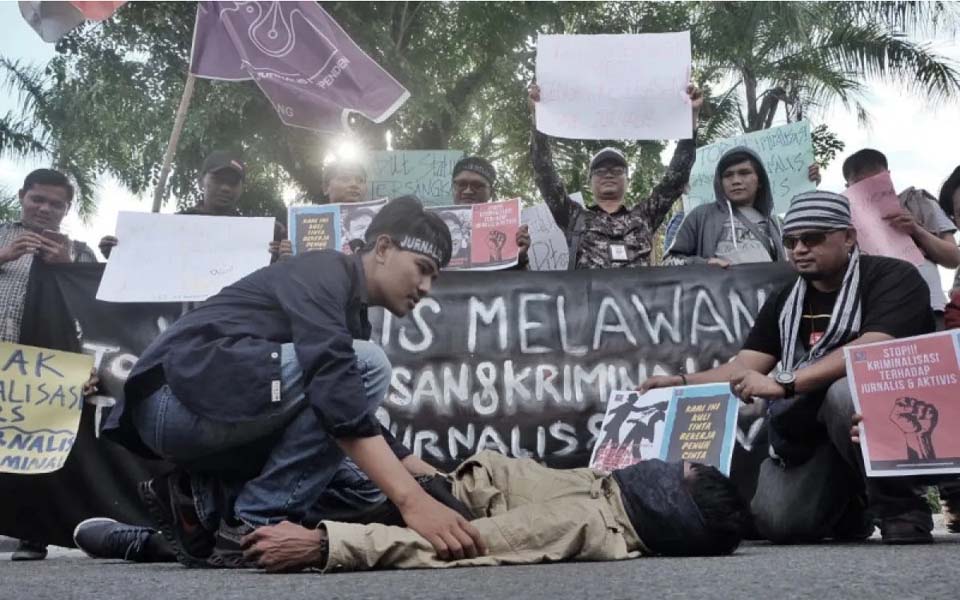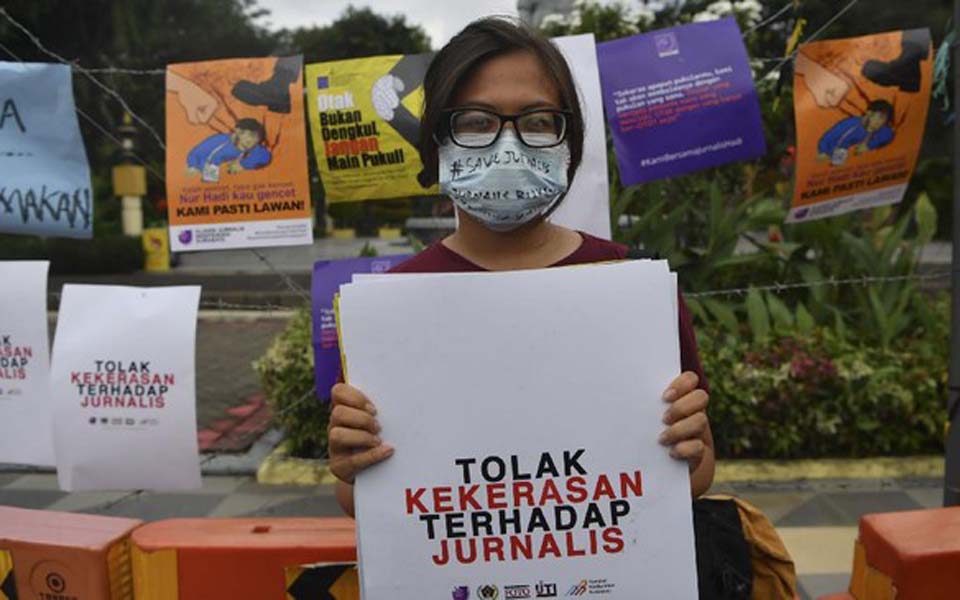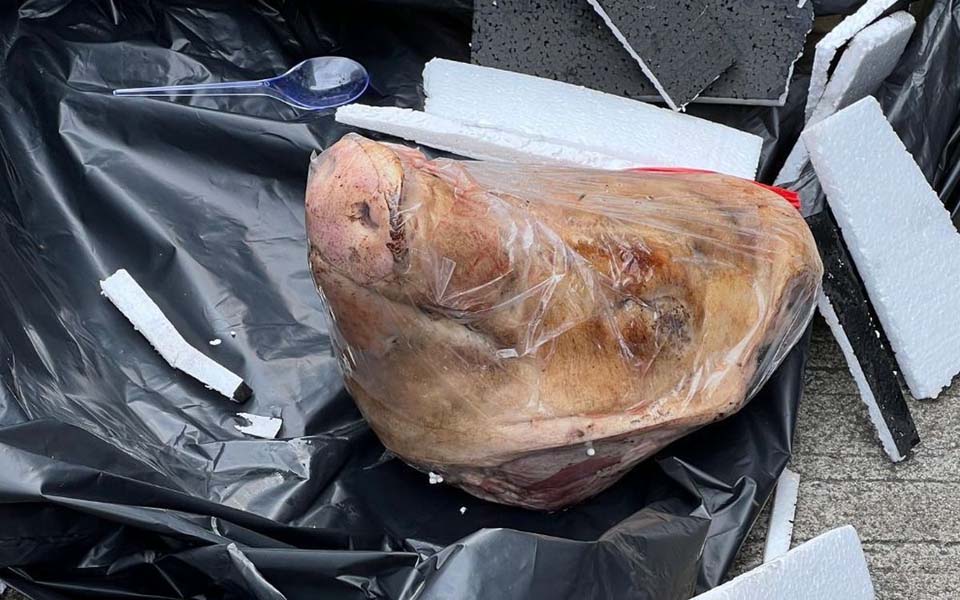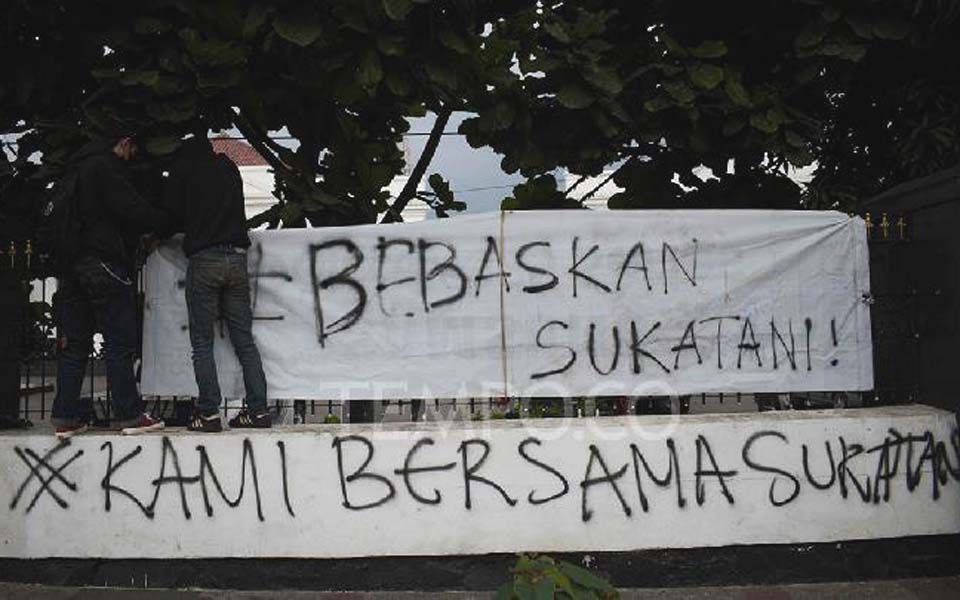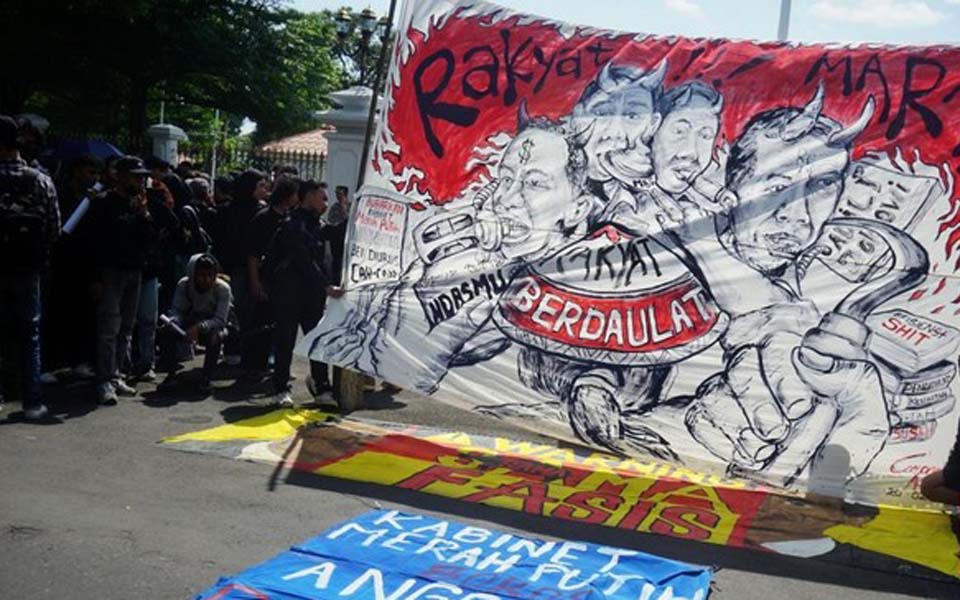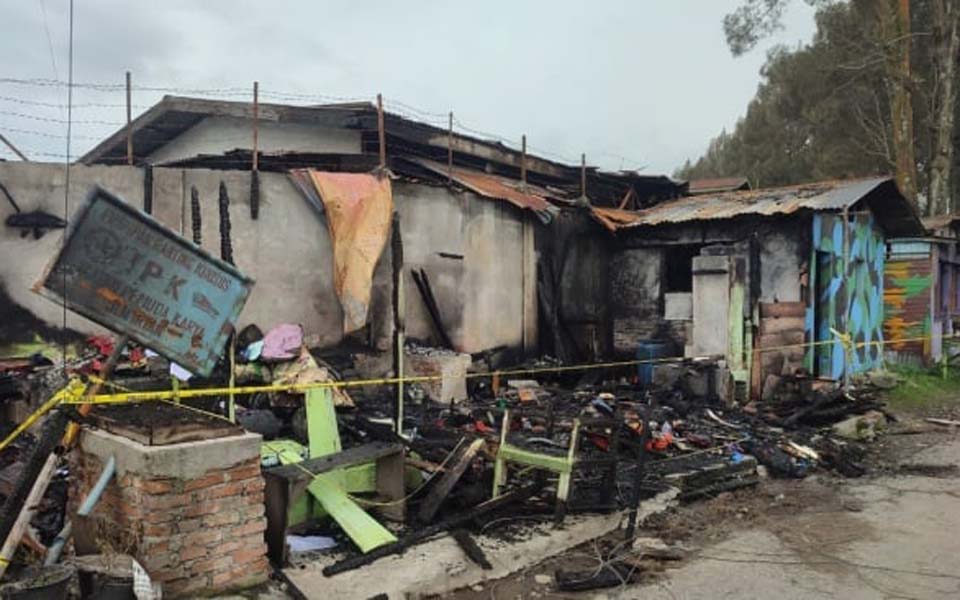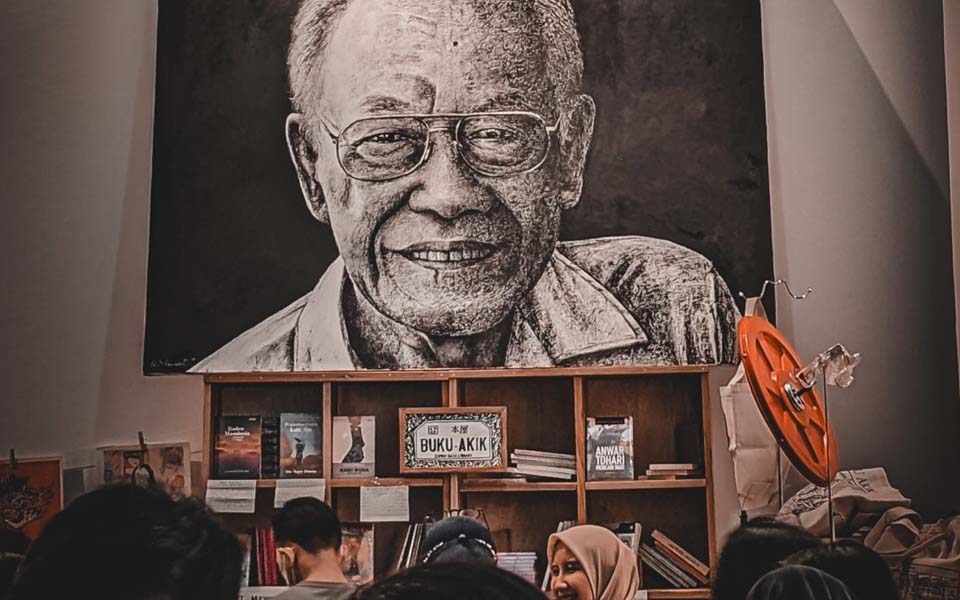Wildan Pratama – The wave of protest and opposition against revisions to the Broadcasting Law (RUU Penyiaran) have begun to mushroom. This time it came from social organisations consisting of journalists, students, content creators and human rights activists in the East Java capital of Surabaya.
On Tuesday May 21, social organisations in Surabaya began holding a consolidation to reject the bill.
Surabaya Alliance of Independent Journalists (AJI) Chairperson Eben Haezer said the consolidation was initiated by the East Java Journalists Advocacy Committee (KAJ), which is made up of AJI, the Commission for Missing Persons and Victims of Violence (Kontras) and the Lentera Legal Aid Foundation (LBH Lentera).
Through this consolidation forum, they want to explore input and responses from other elements related to the Broadcasting Bill. After holding the consolidation, Haezer stated that it was found that the wrong procedures were used in the formulation of the bill.
"We want to explore their input and opinions, related to the Broadcasting Bill. In the discussions, we agreed that there was a wrong procedure in the formation of the Broadcasting Bill", Haezer said in Surabaya on Wednesday May 22.
Haezer stated that there are articles in the bill that are not in accordance with the principles of press independence. One of these is Article 50b Paragraph 2c which prohibits the screening of exclusive investigative journalistic content.
"This is contrary to Law Number 40/1999 on the Press", said Haezer.
Haezer explained that under the Press Law it stipulates that the work of the press is protected by law, so the Broadcasting Bill is seen as conflicting with this principle.
The prohibition on airing products of investigative journalism, said Haezer, has the potential to limit the public's right to obtain information.
"This also violates the public interest, because the public's rights to know is a human right, and that task is a mandate entrusted to journalists", he said.
Although the AJI firmly reject the Broadcasting Bill, it did not mean they fully accept Broadcasting Law Number 23/2002.
"There are still problems, yes (with the existing Broadcasting Law), but we consider it must reviewed from the beginning by involving meaningful public participation", said Haezer.
Haezer emphasised that the House of Representatives (DPR) should be more transparent in drafting the bill and involve the public before its preparation.
"It must go back to the start, be done transparently in formulating articles, involving the public so that then articles won't emerge that have the potential to violate press independence and freedom of expression", he said.
Speaking in the same vein as Haezer, Surabaya Indonesian Television Journalist Association (IJTI) Chairperson and regional coordinator Falentinus Hartayan, who also attended the coordination forum, said the Broadcasting Bill that is still being deliberated by the DPR's Legislative Body (Baleg) should not be rushed into law.
"The IJTI itself believes, don't rush the Broadcasting Bill into a law, because there are many or there several points in the articles that are controversial and problematic", said Hartayan.
According to Hartayan, there is the potential for overlapping functions in this bill, namely Article 42 Paragraph 2 which gives the authority to resolve broadcasting journalistic disputes to the Indonesian Broadcasting Commission (KPI).
"In that article the KPI can handle disputes, this conflicts with Law 40 of 1999 on the Press, where the function of the Press Council is to resolve press disputes. So here there's an overlap", said Hartayan.
Meanwhile Commission for Missing Persons and Victims of Violence (Kontras) Surabaya coordinator Fathul Khoir said there are indications that the draft law will restrict Indonesian democracy, curb press independence and silence freedom of opinion.
"In the discussions earlier there were a number of important points. One of them is that there are indications that this bill will curb democracy and freedom of expression", said Khoir.
Thus, continued Khoir, all products by cultural actors, artists or content creators that appear on digital platforms will be monitored and regulated by the KPI, as well as being subject to very normative prohibitions that have the potential to suppress freedom of opinion and expression.
"It's vulnerable to then be used by the authorities as a tool to censor broadcasting institutions or digital content", Khoir explained.
A number of different social organisations attended the consolidation in Surabaya on Tuesday evening, including AJI Surabaya, the IJTI and the Indonesian National Private Radio Broadcasting Association (PRSSNI).
Also present was the Indonesian Student Press Association (PPMI), Kontras Surabaya, LBH Lentera, LBH Surabaya, the Thursday Action and the Media and Creative Industries Trade Union for Democracy (Sindikasi), as well as academics, artists, content creators and other civil society organisations. (wld/bil/ipg)
[Translated by James Balowski. The original title of the article was "Elemen Masyarakat Sipil Surabaya Menolak Pengesahan RUU Penyiaran".]








